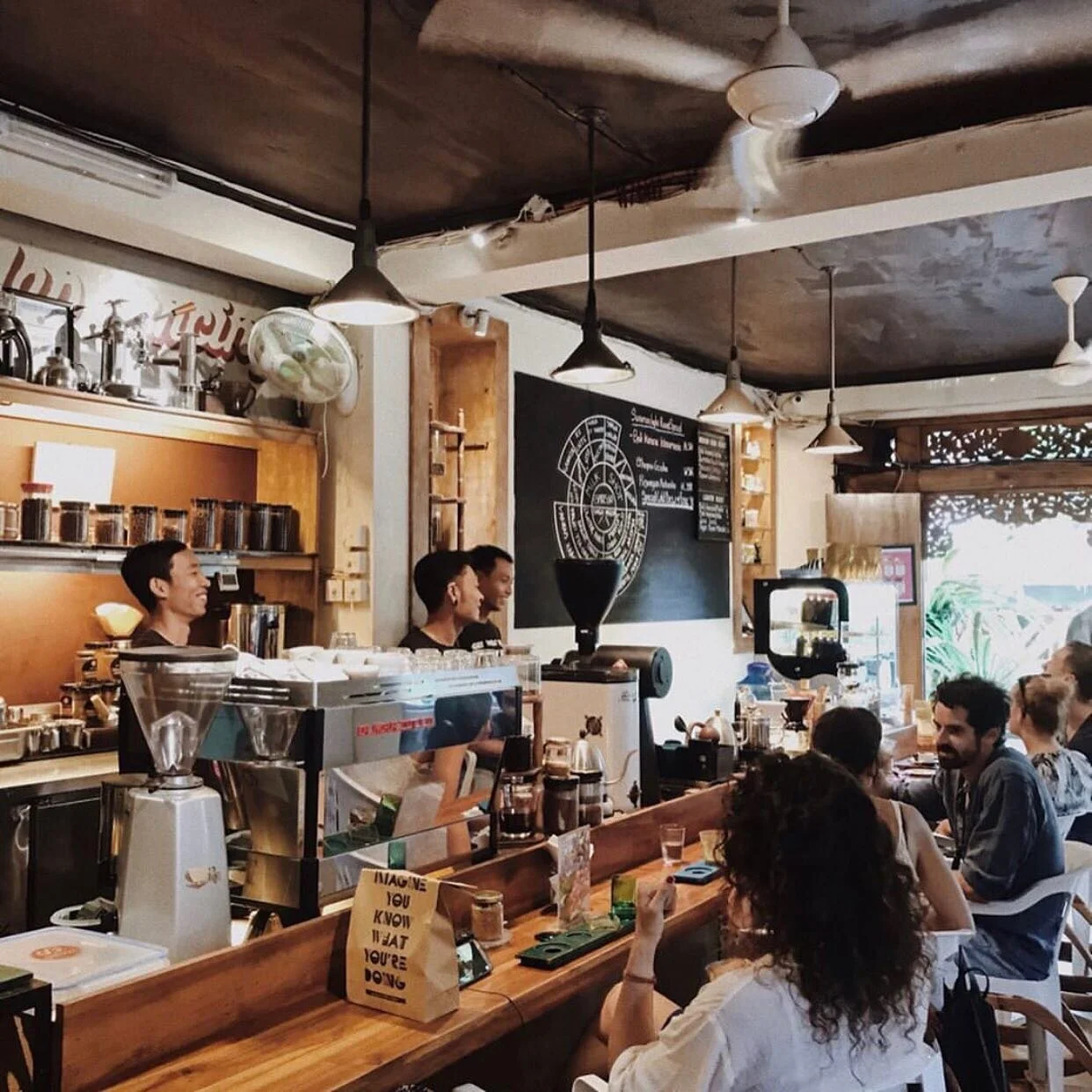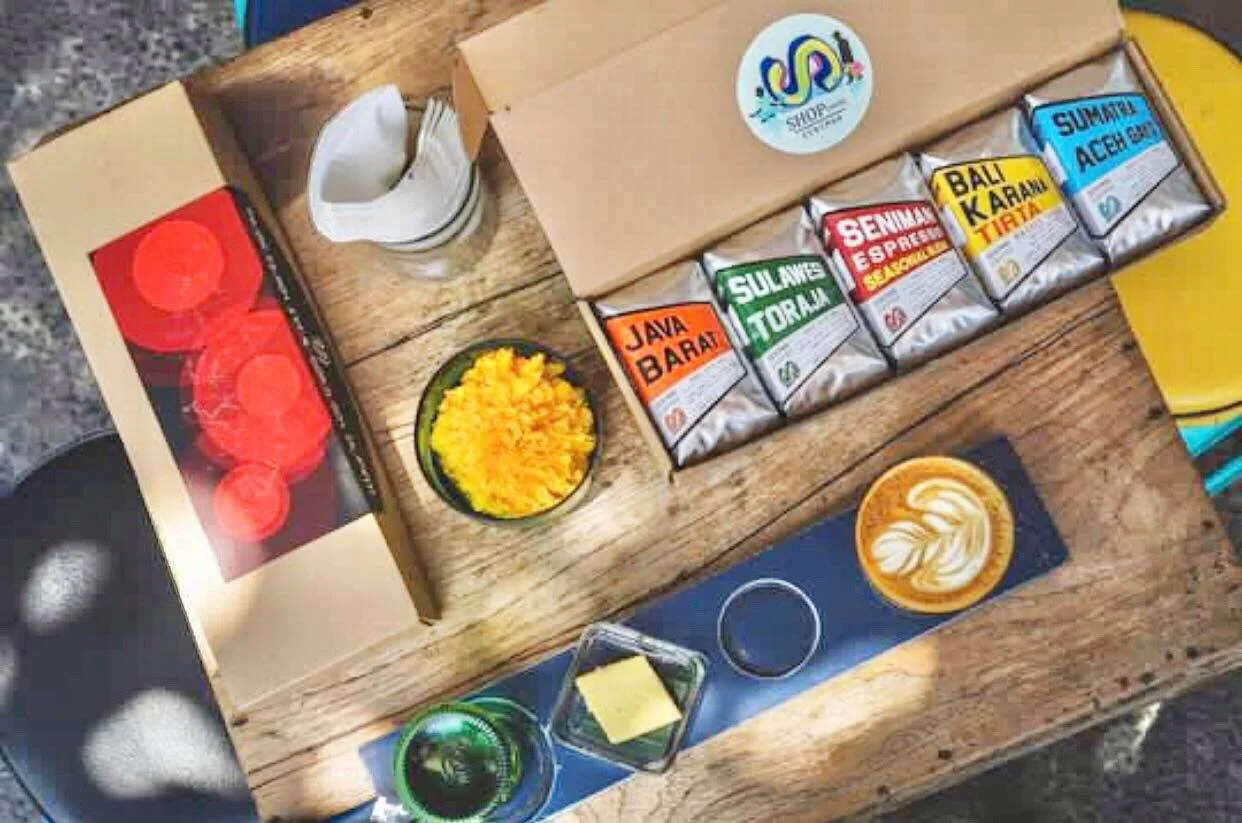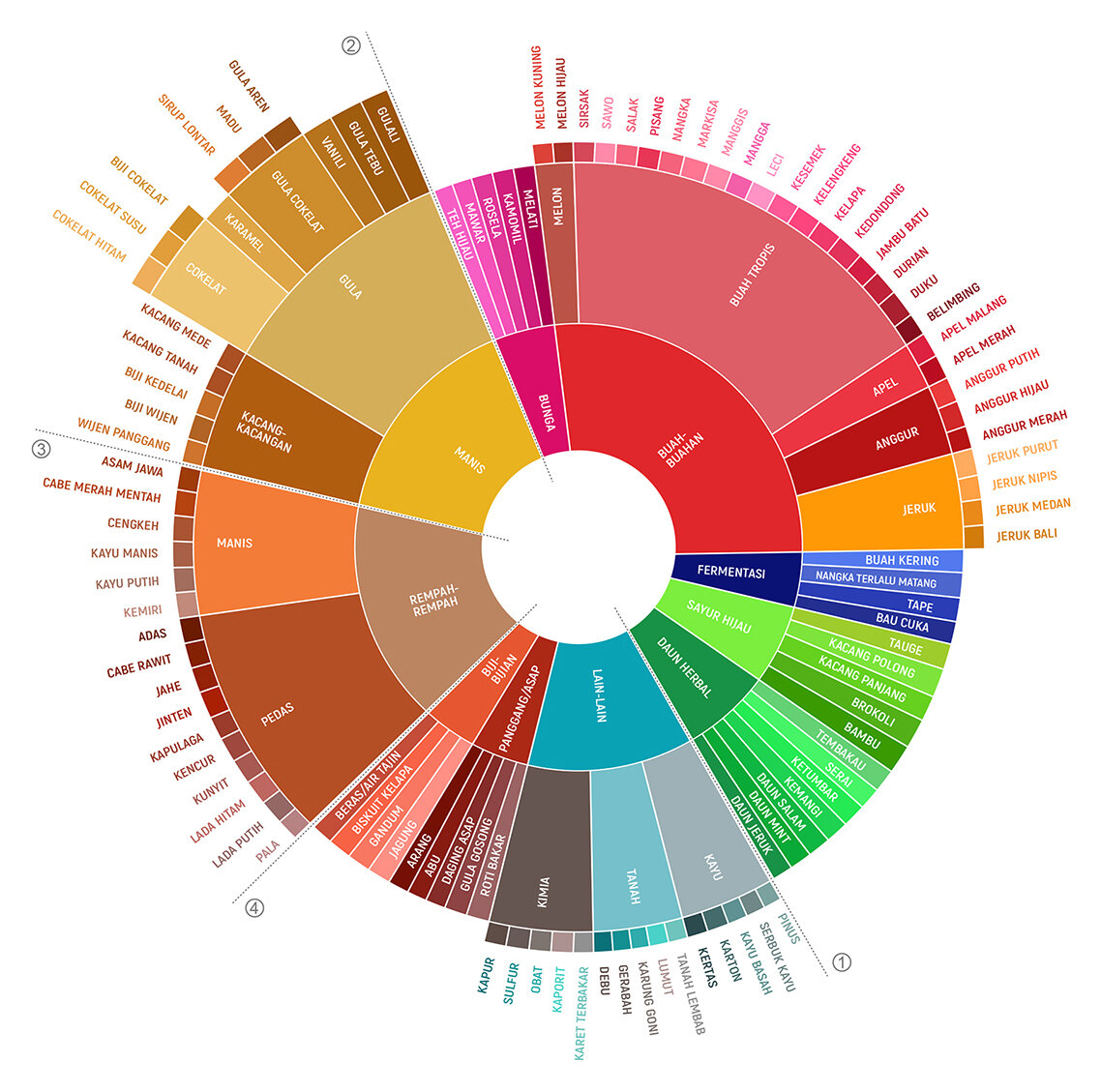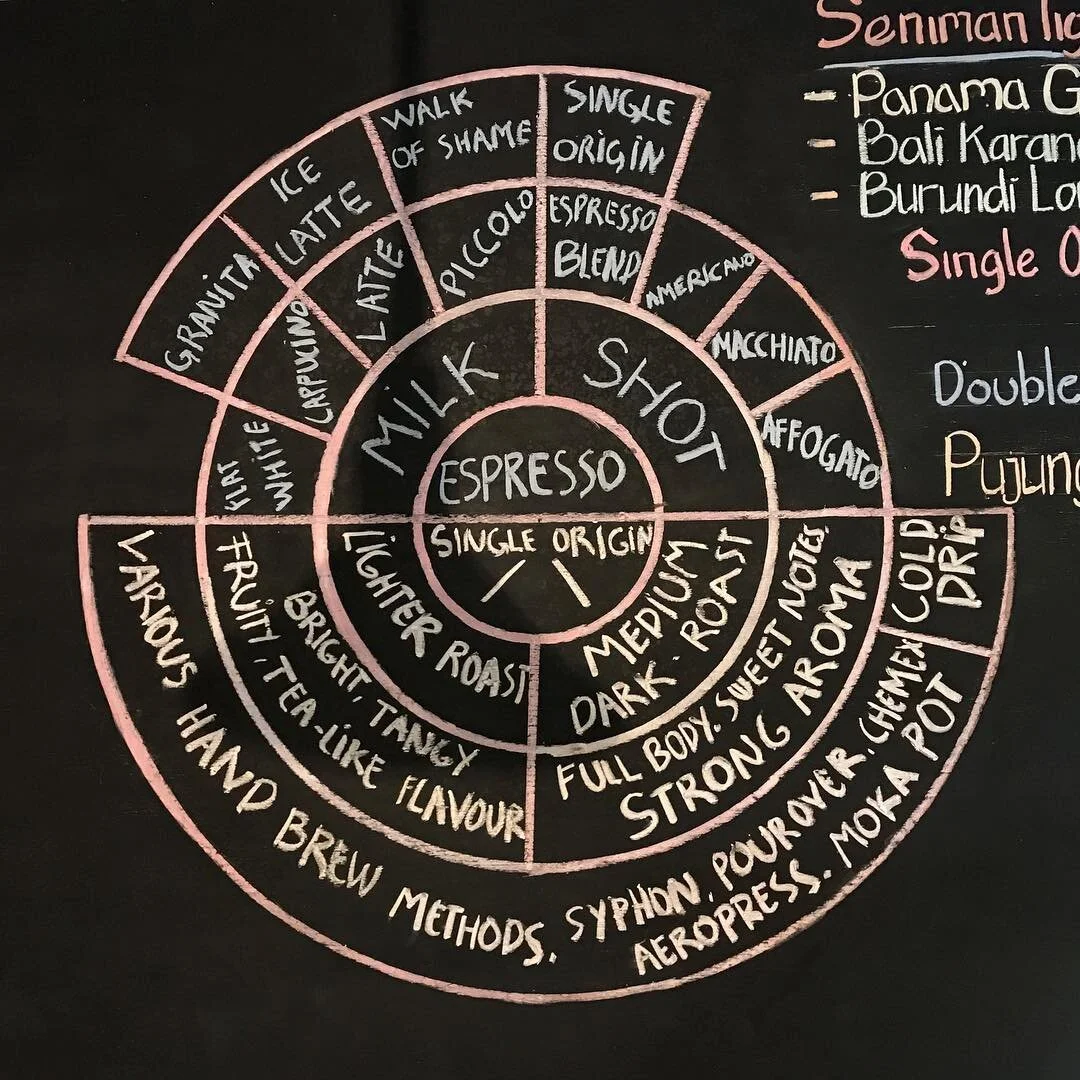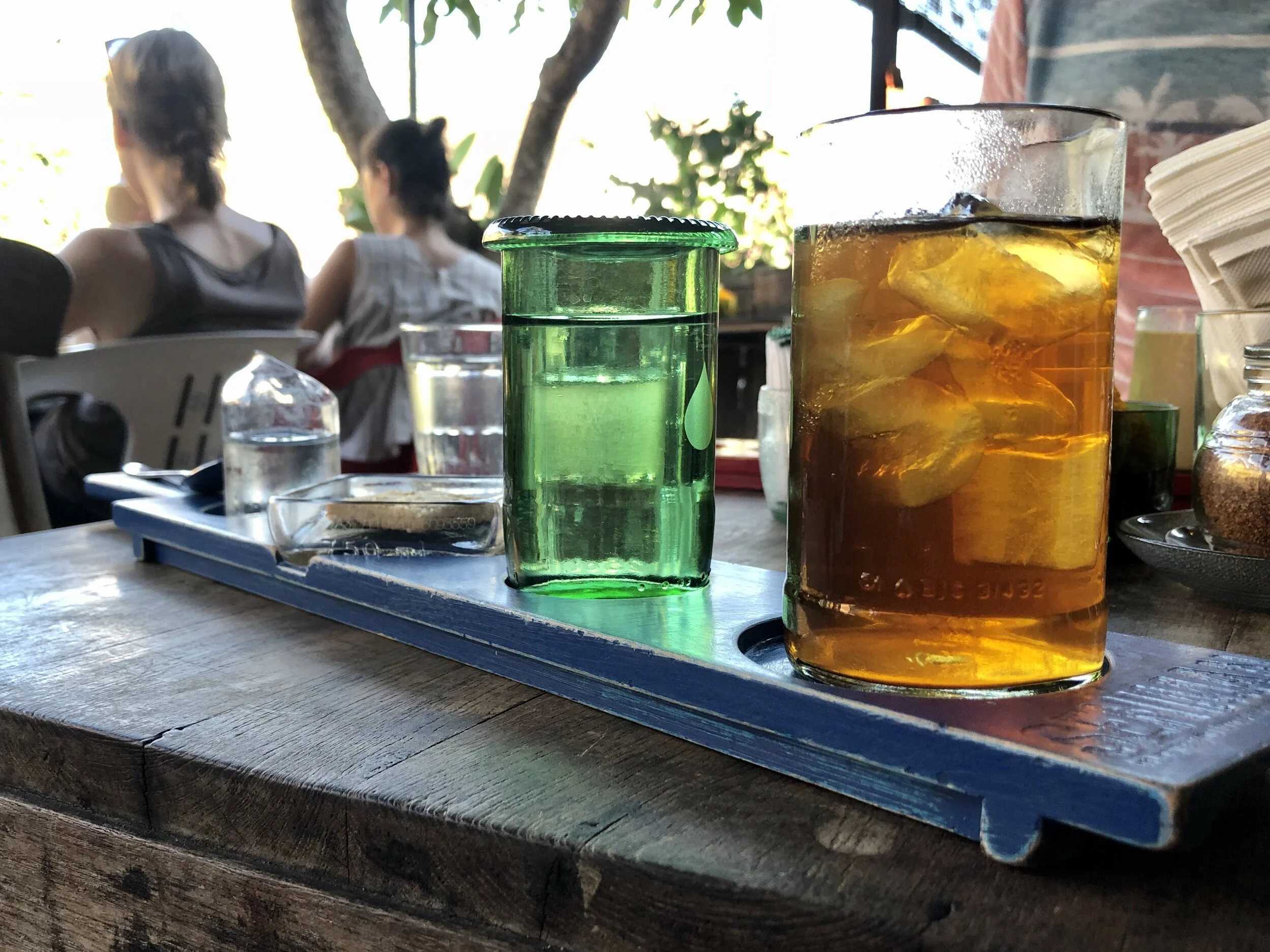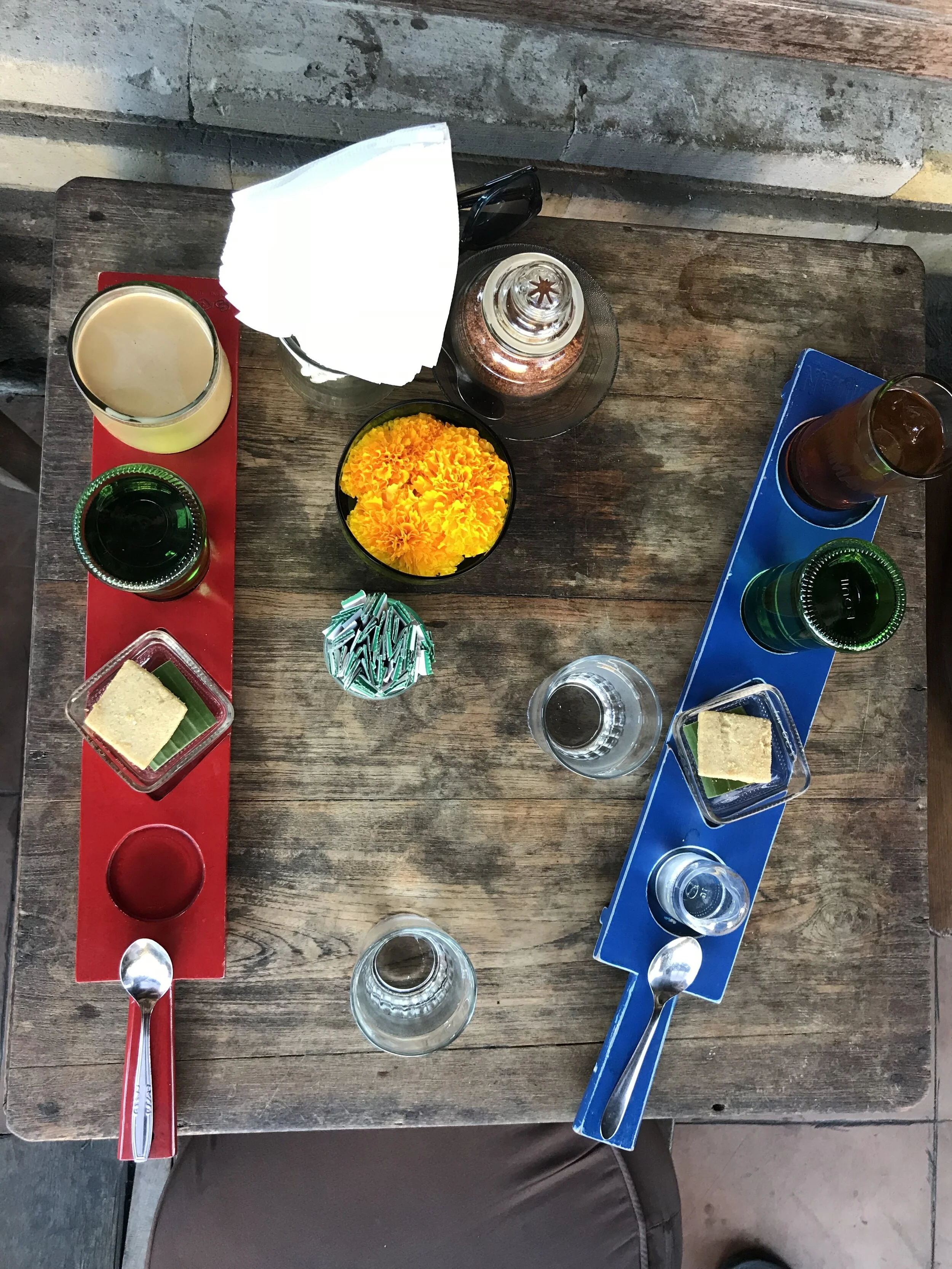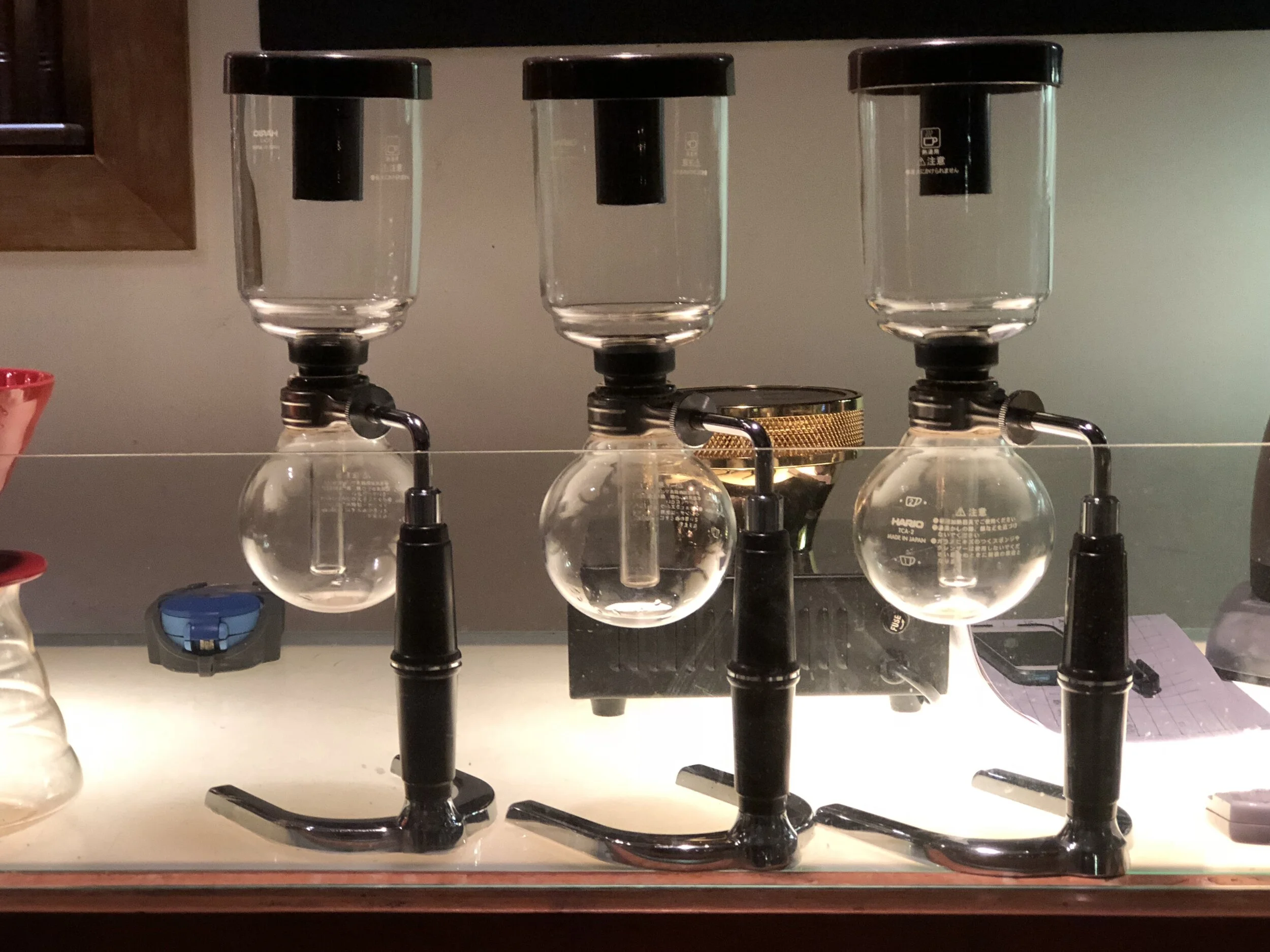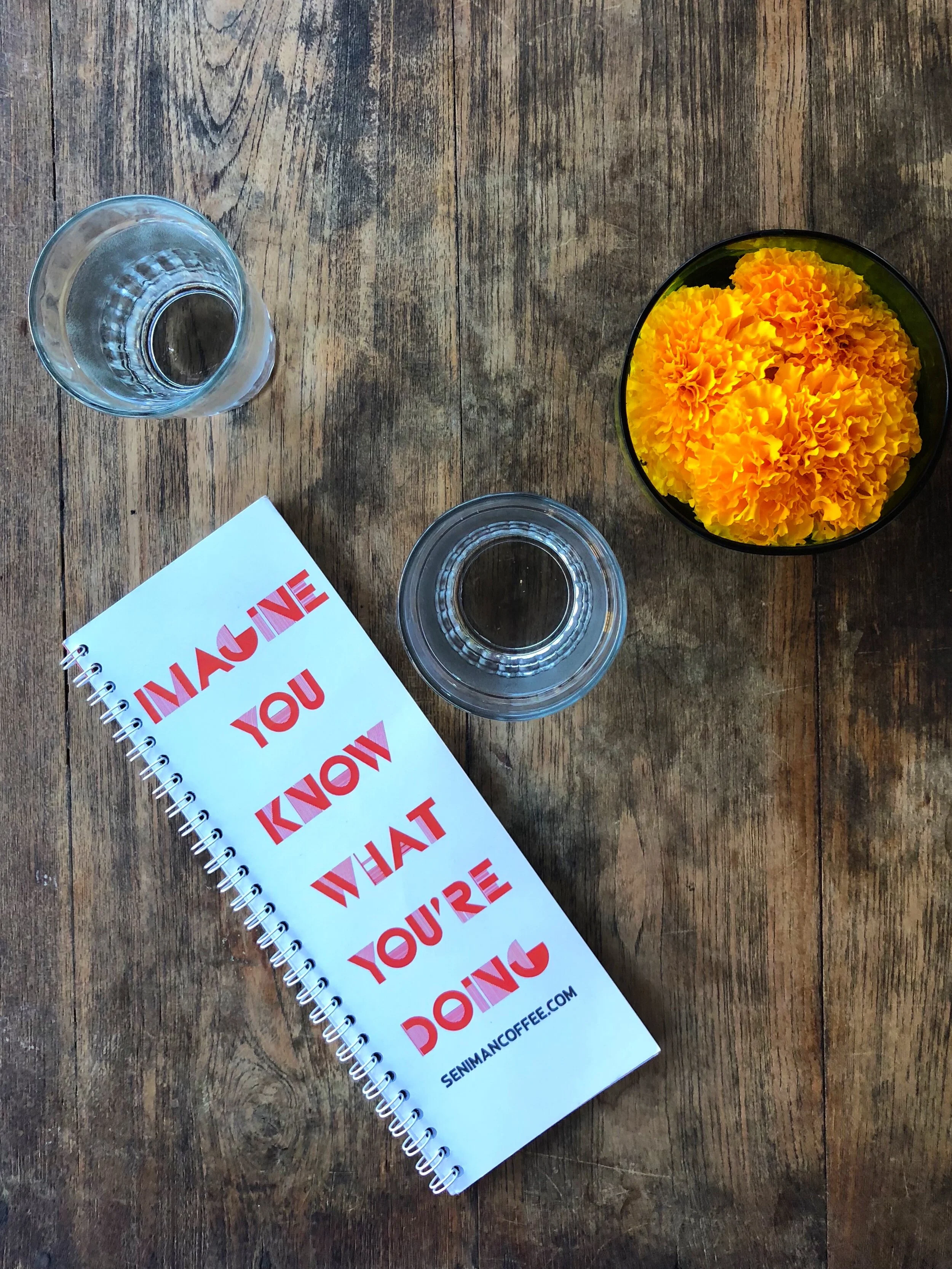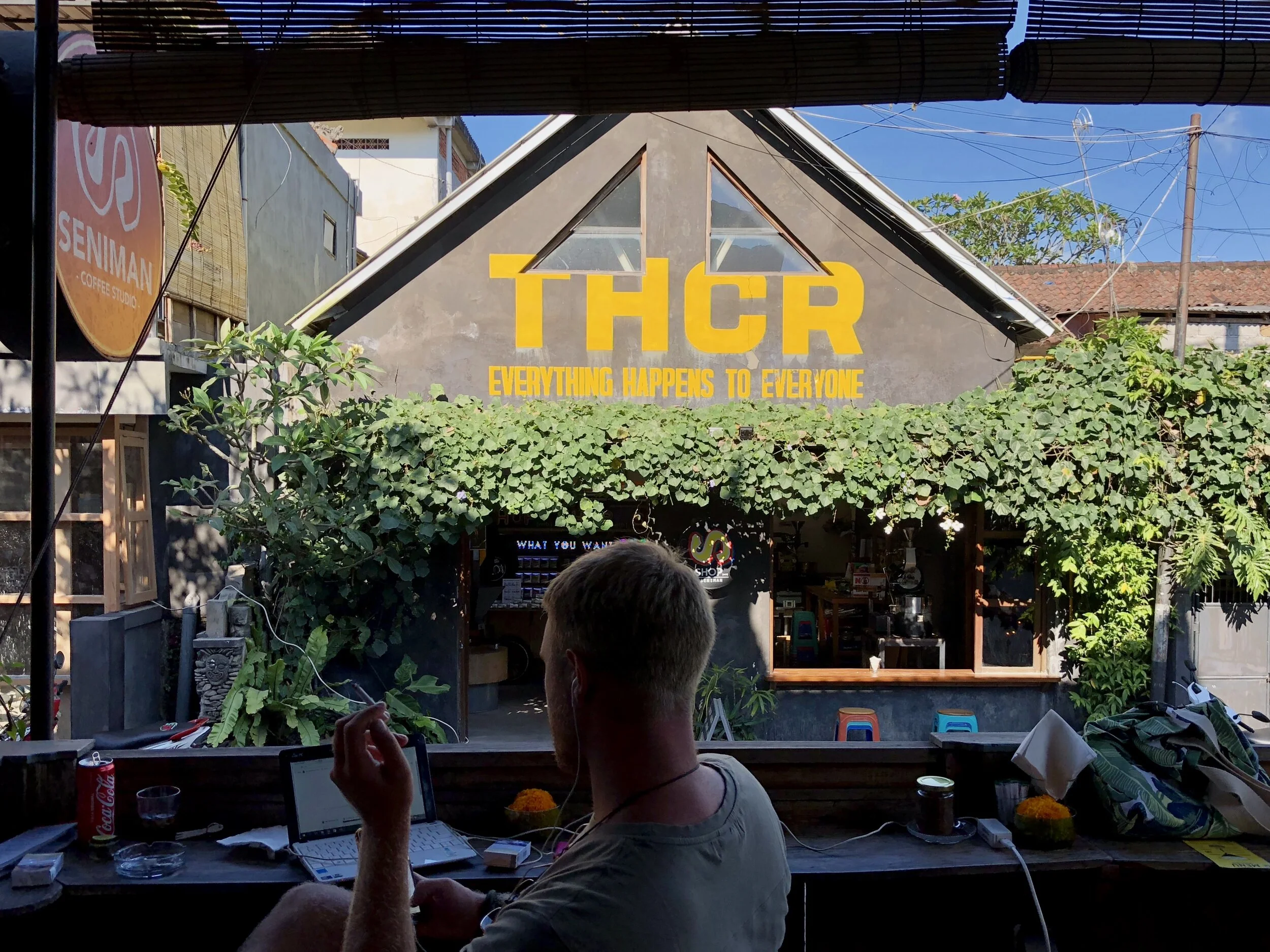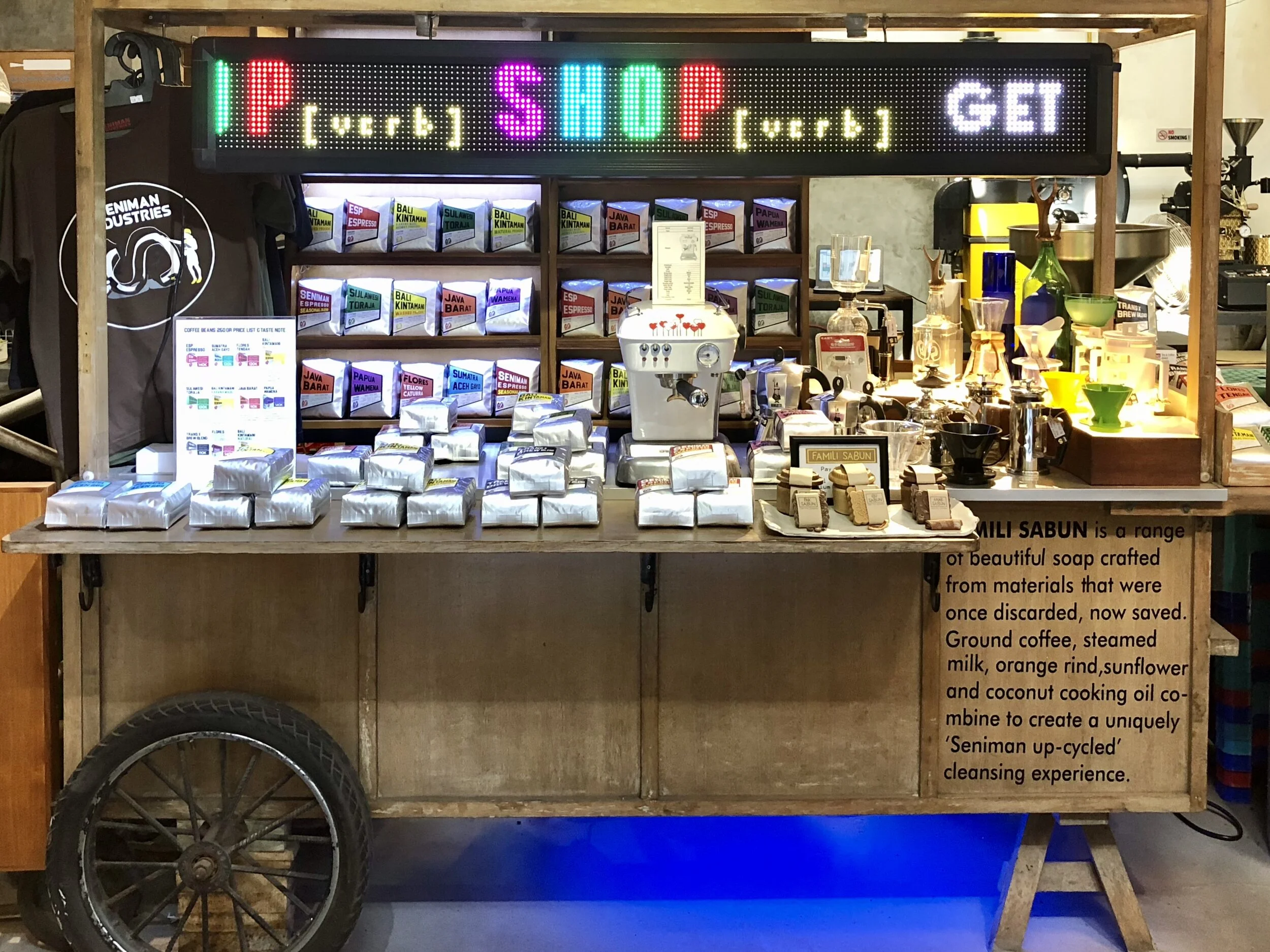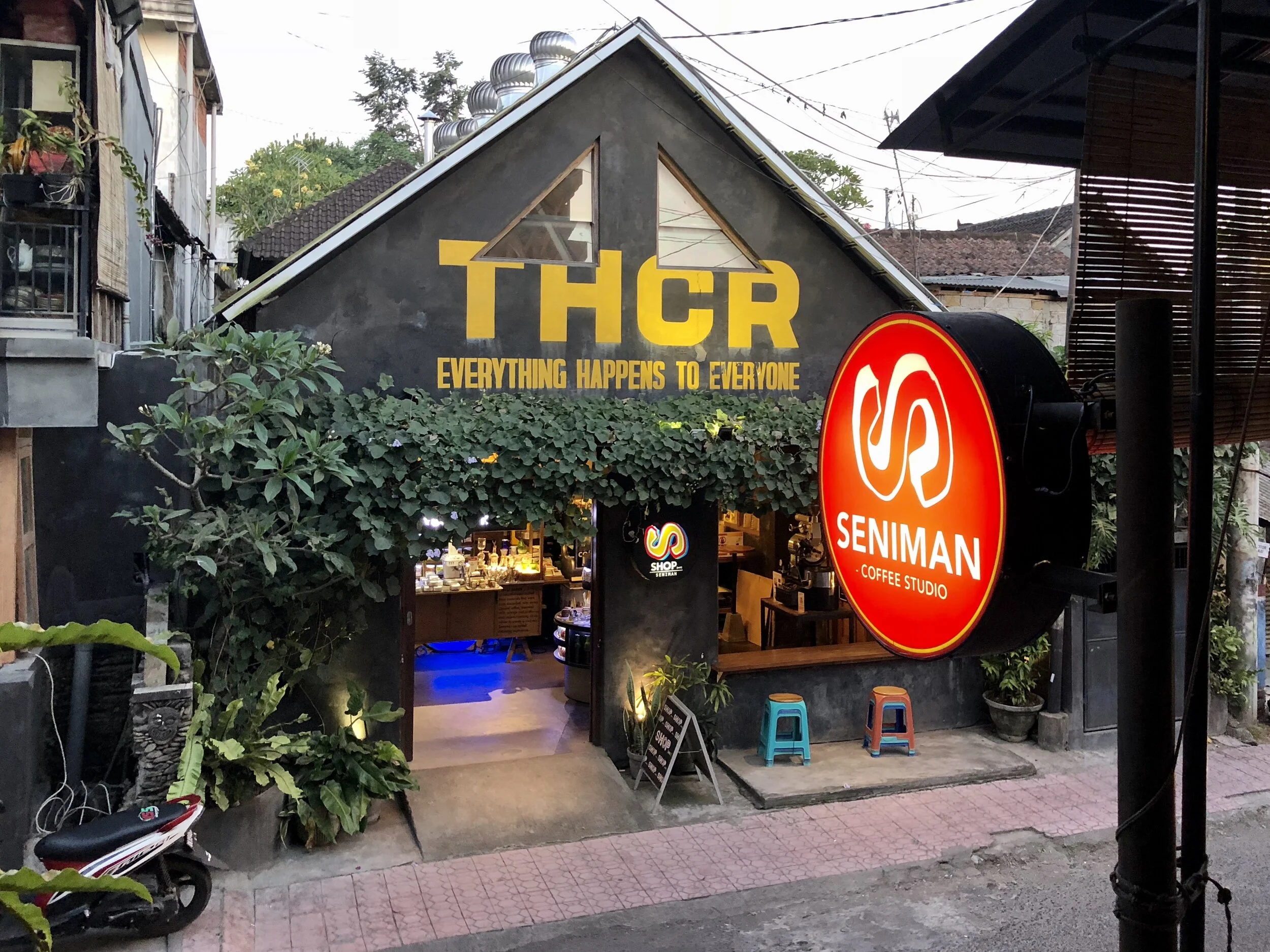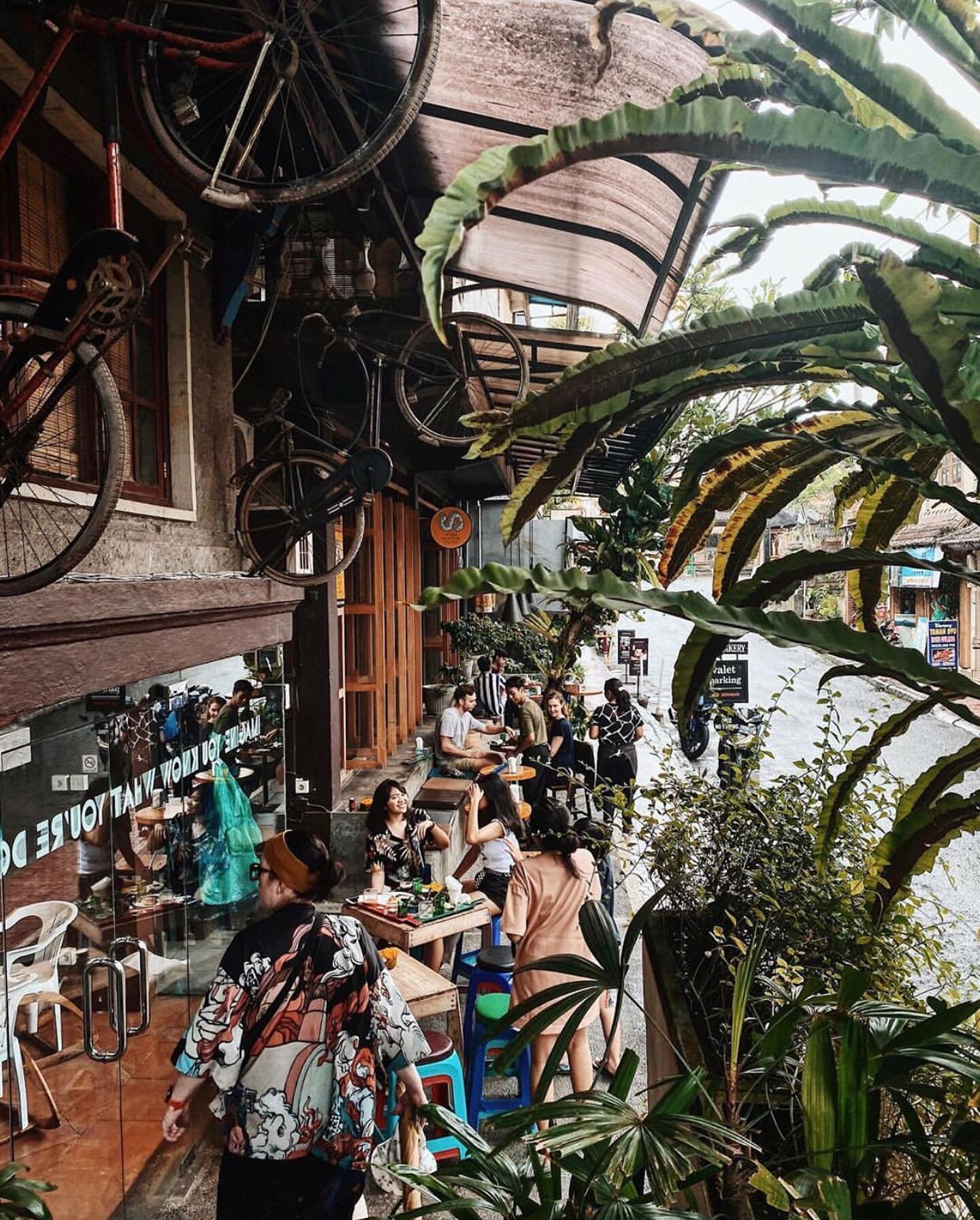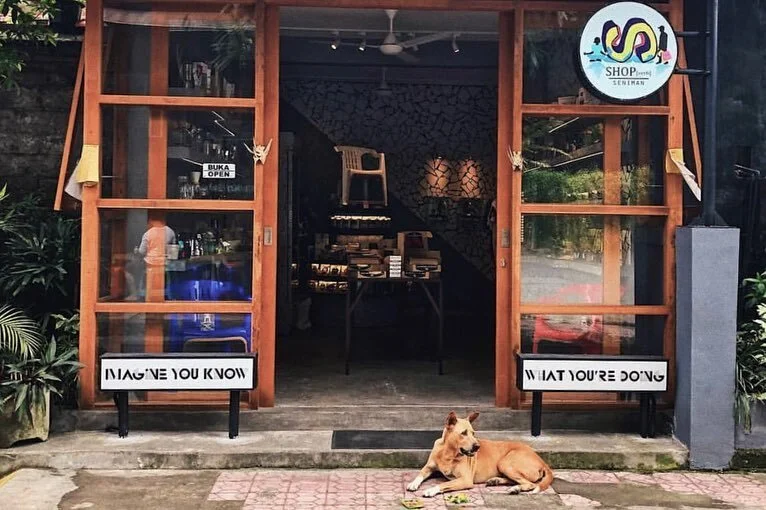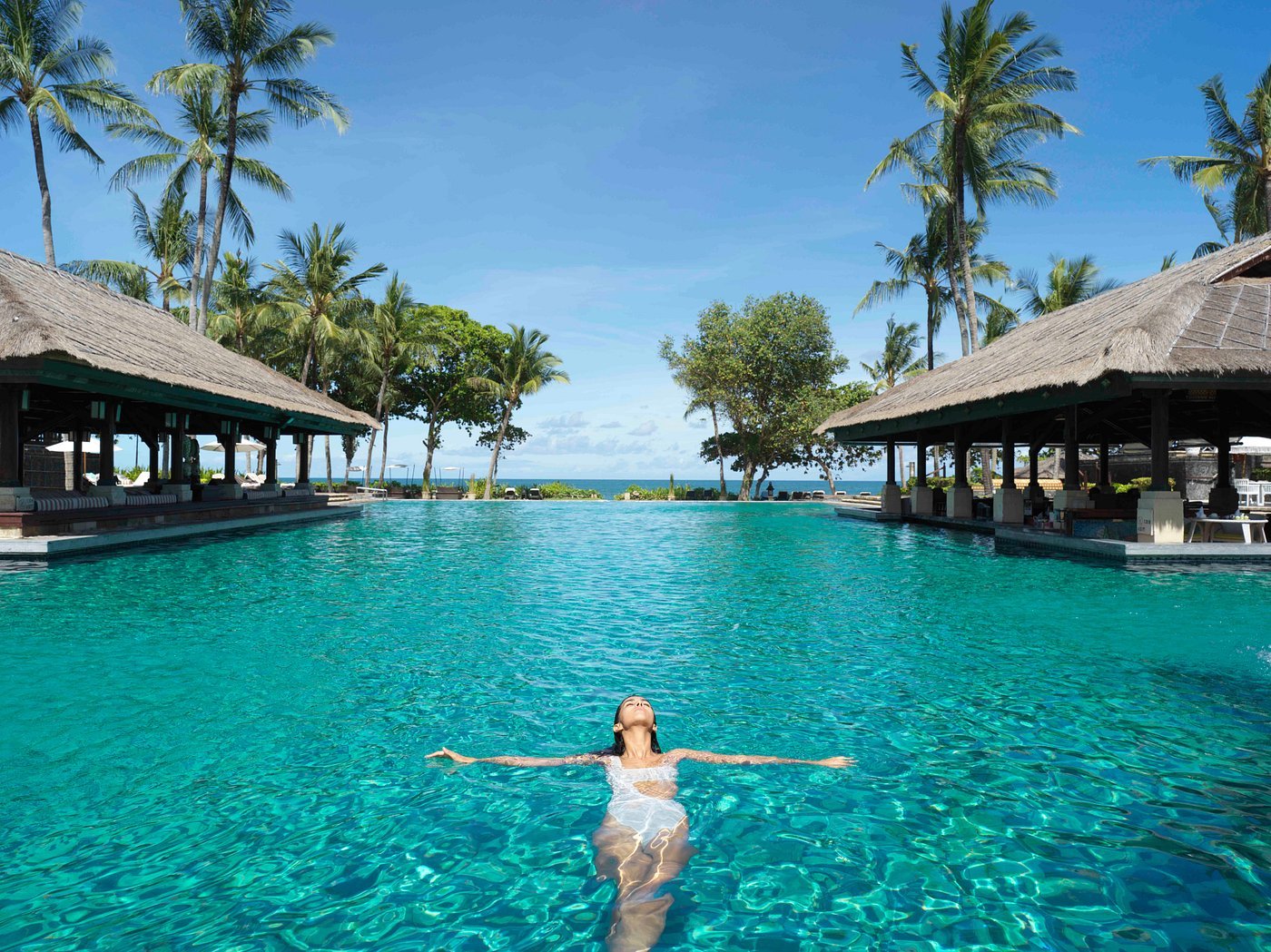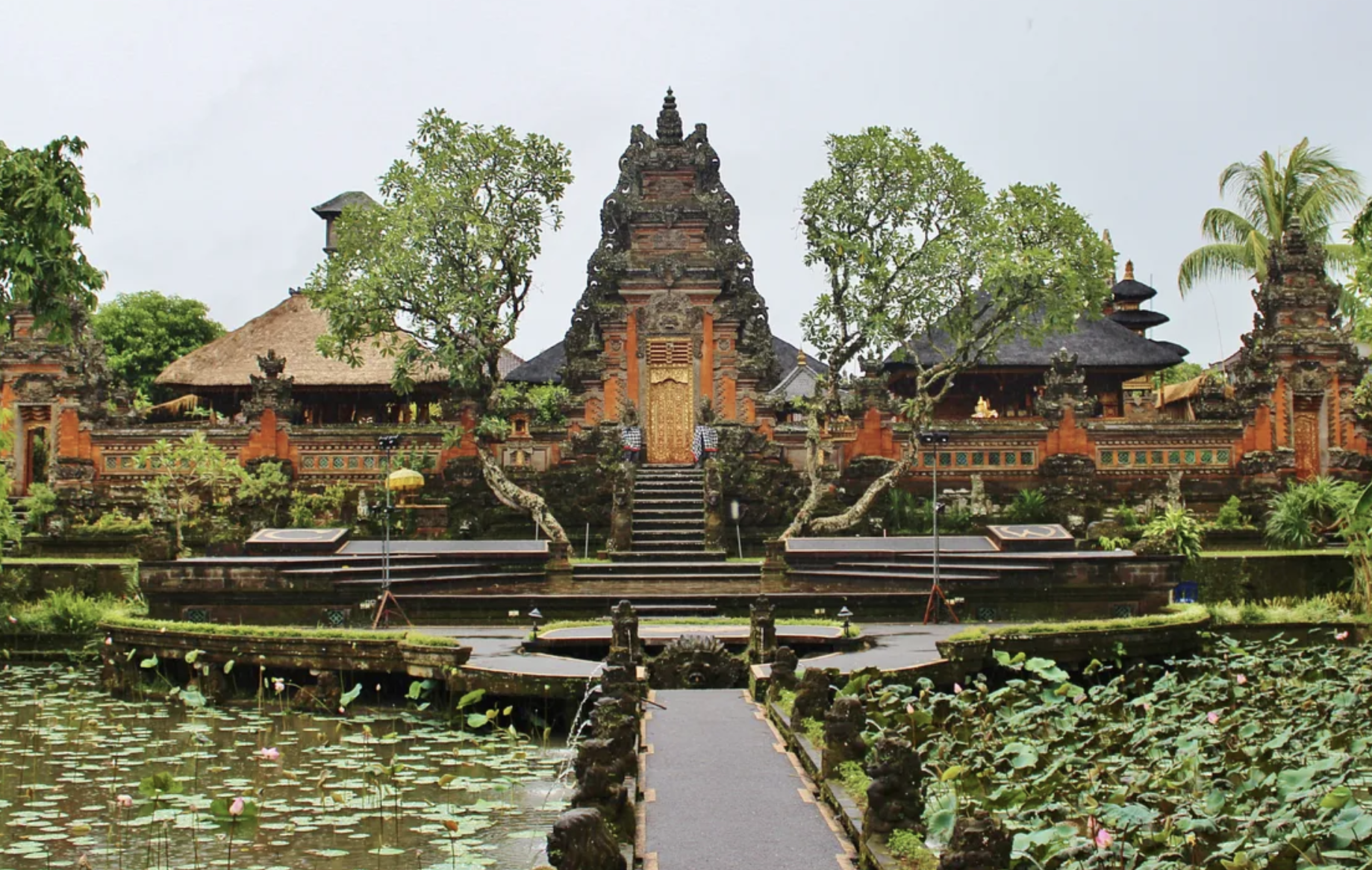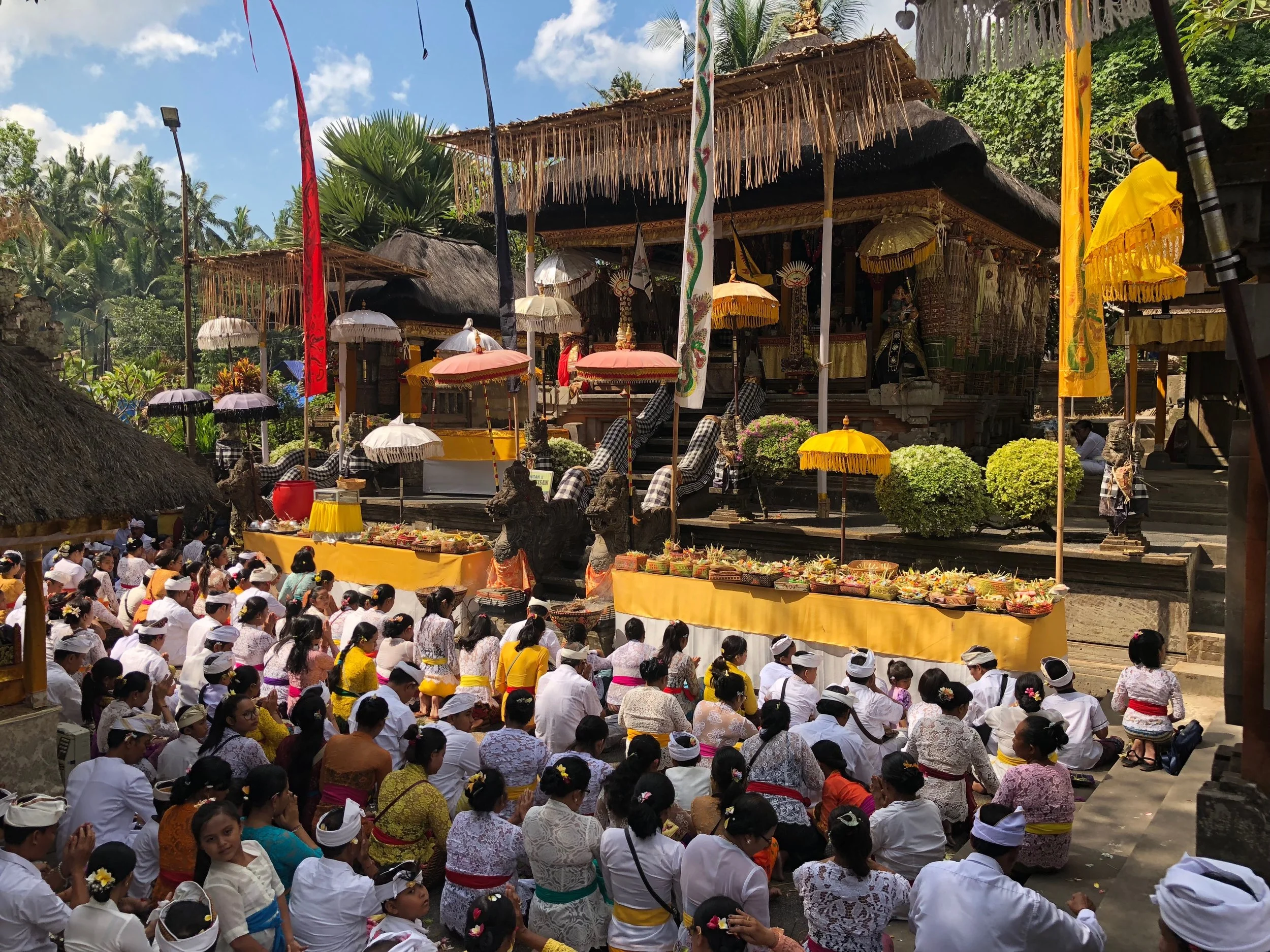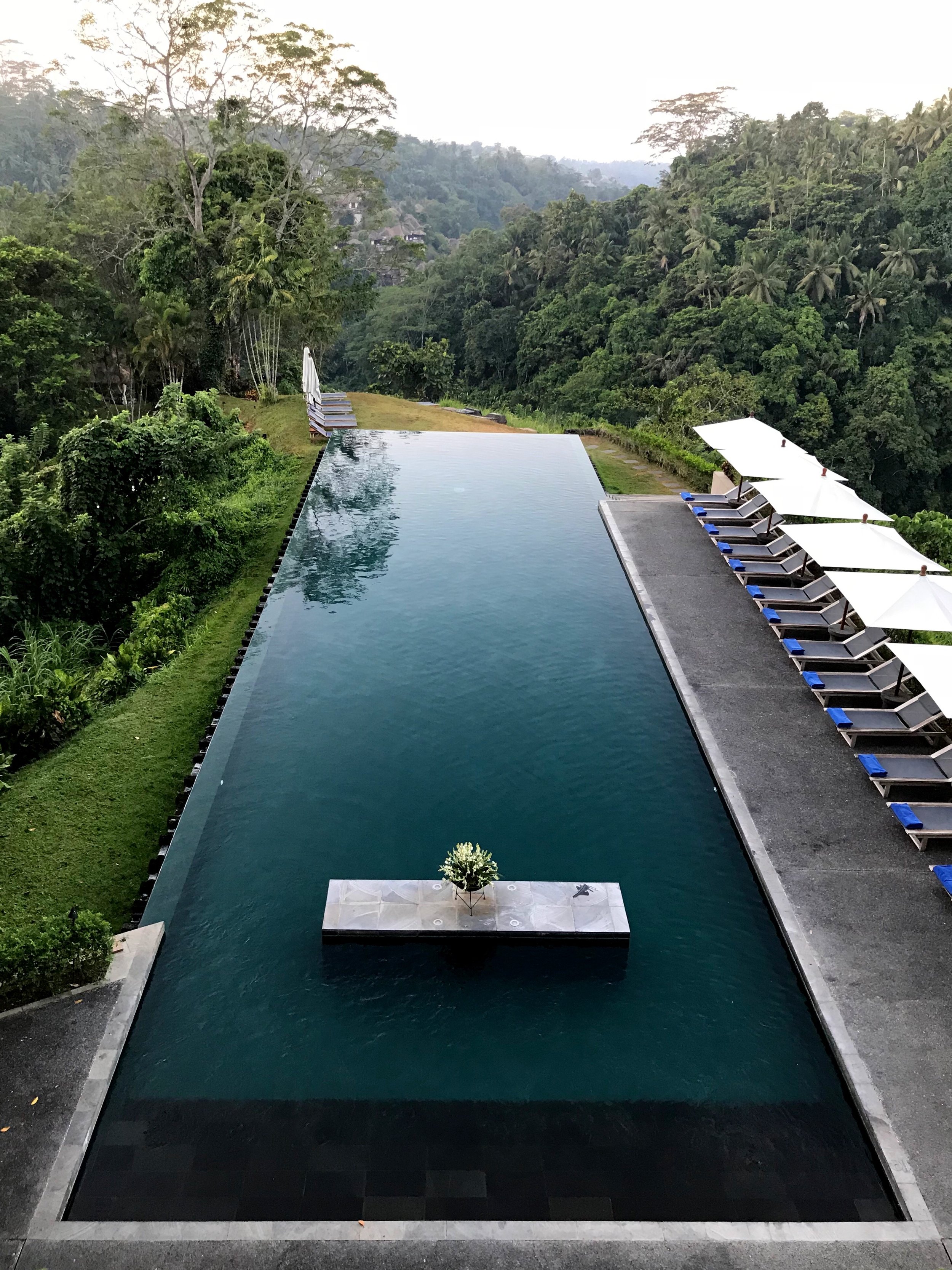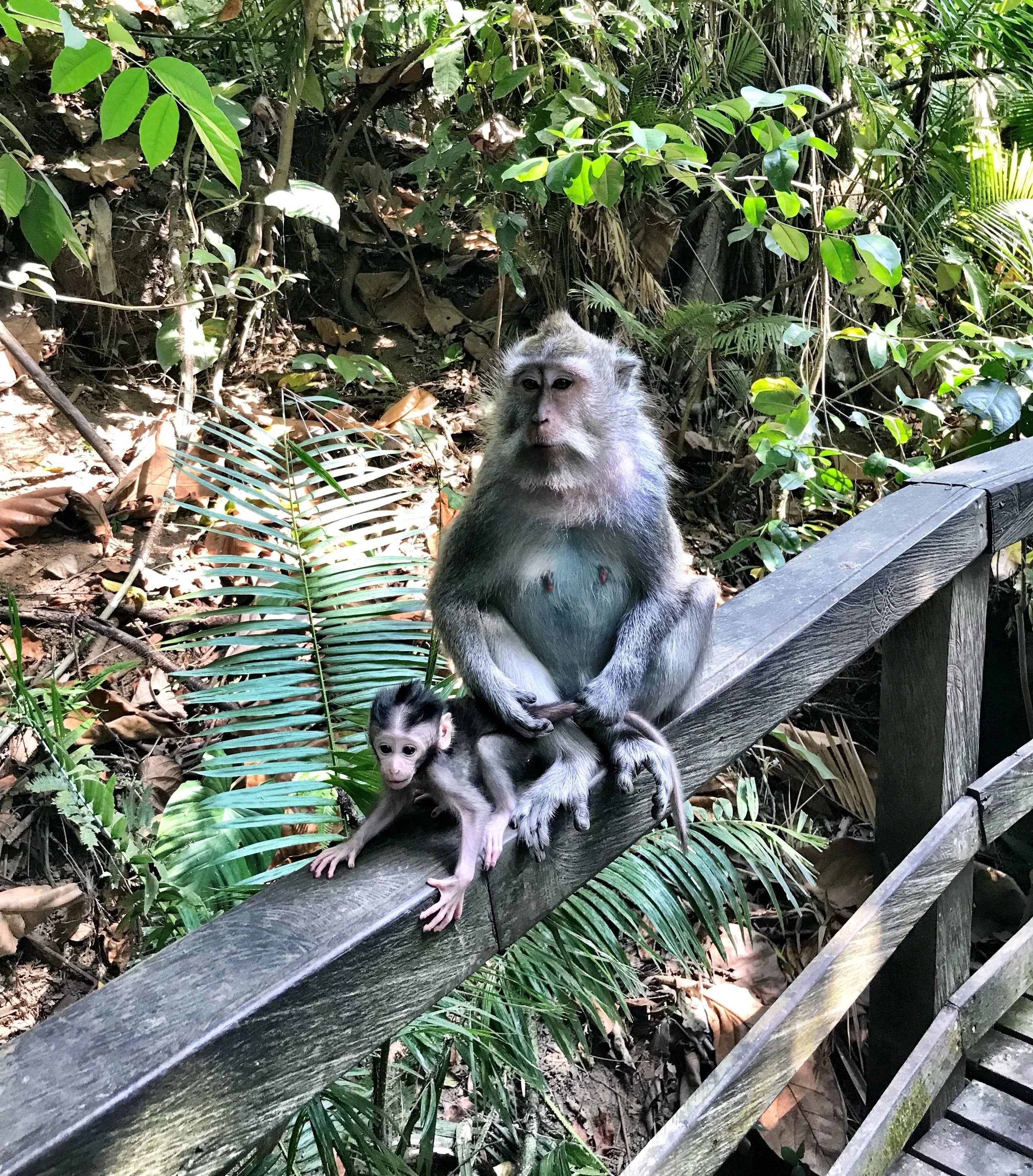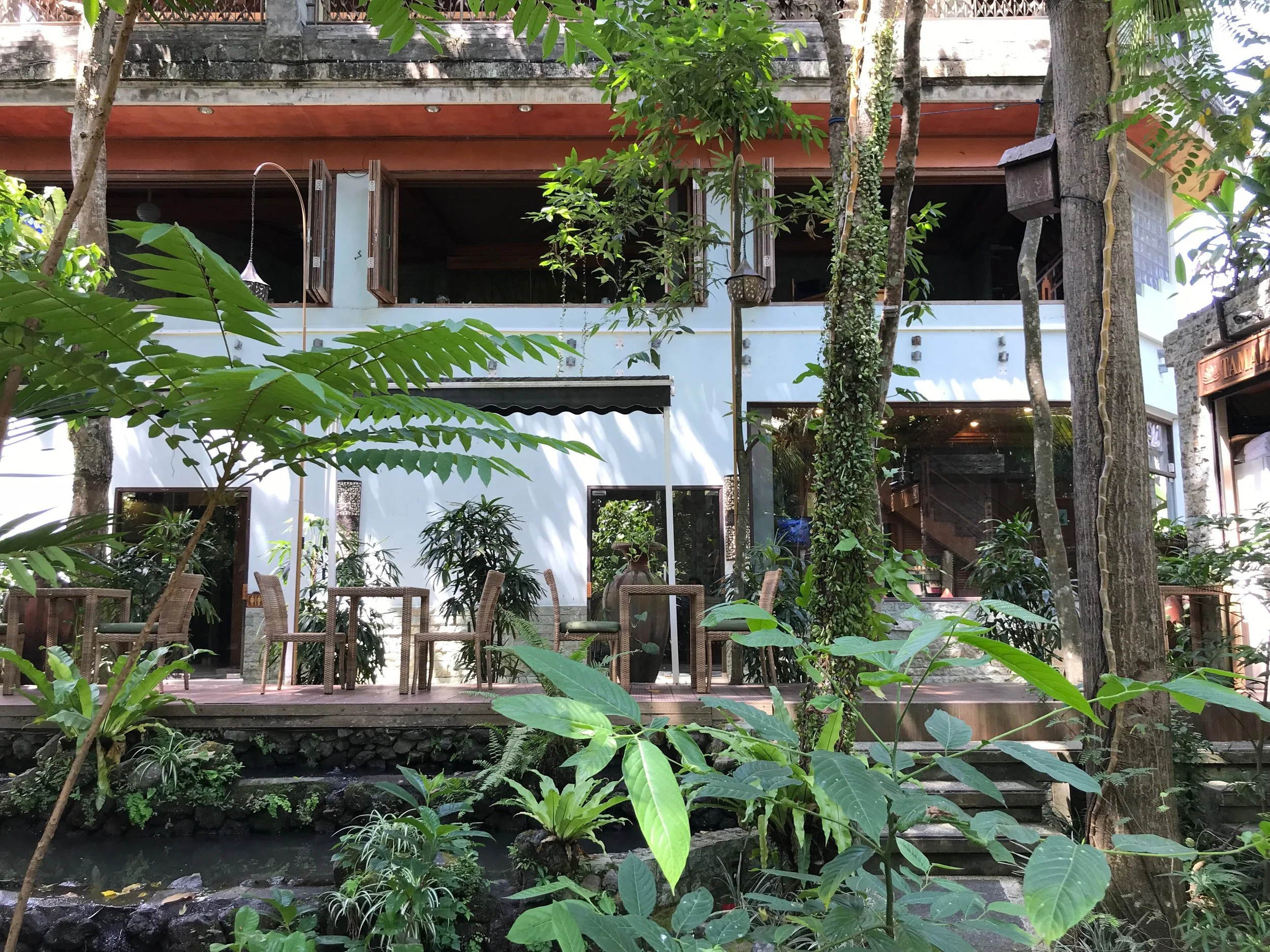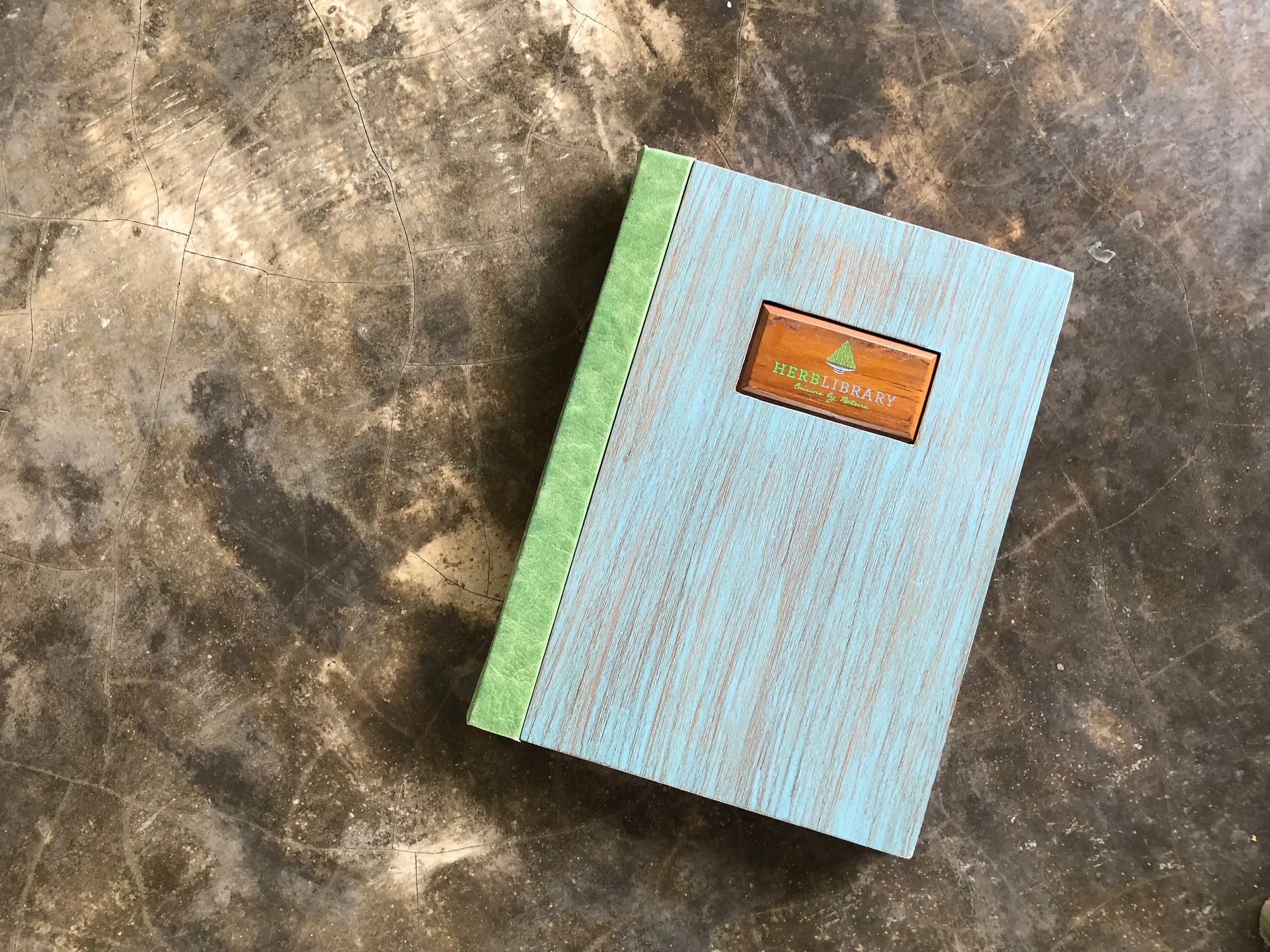Looking for the best coffee in Bali? Check out this stylish coffeeshop and learn about third wave coffee — as well as what’s next in coffee culture.
Get your java fix in Ubud at the trendy Seniman Coffee Studio.
For Wally and me, one cup of coffee is never enough. And if you follow our blog — a big thank you to those who do — you’re probably already familiar with my borderline obsessive research when planning a trip. I like to find the hidden gems.
Seniman Coffee Studio in Ubud, Bali was one of those discoveries. I first read about them on Sprudge, a media network dedicated to global coffee culture. After reading contributing writer Evan Gilman’s vivid article, I was determined to seek out Seniman on our visit to the Indonesian island.
Seniman specializes in single-origin local coffee beans.
When we arrived at the café, tucked away at No. 5 on quiet Jalan Sri Wedari (jalan is the Indonesian word for street), I felt like we were in the know. Seniman Coffee Studio is clearly a popular spot. The café was buzzing with tourists, locals and digital nomads, a few who were working on their laptops or simply daydreaming — which isn’t hard to do once you find yourself perched on the open-air verandah after spending an afternoon exploring Ubud.
The coffee flavor wheel…in Indonesian.
Reinventing the Wheel
Inside the café, a row of perfectly lit siphon coffee brewers looked like they belonged in a chemistry lab. To help you decide what to order, a hand-drawn coffee taster’s wheel diagram on the wall describes the flavor profile and intensity of each roast. Seniman specializes in light roast single-origin Indonesian coffees. I’m a fan, as this method allows the beans to retain moisture and oils, which in my opinion, yields a less acidic, more complex and aromatic cup.
Part of the current coffee culture is telling the story of each type of bean.
A Brief History of Coffee in Indonesia
Coffee was first introduced to Indonesia by the Dutch in 1699. Arabica coffee trees were imported and cultivated on estates in Java, giving rise to the Dutch East India Company and the coffee trade. Fast forward to what’s referred to as the third wave movement, where consumers have become interested in the provenance, production and experience that comes with enjoying a quality cup of coffee. Long gone are the days when the best part of waking up was Folger’s in your cup.
This graphic can help you figure out what to order.
In Indonesia, the third wave came down to the arrival of Starbucks, according to Rodney Glick, owner of Seniman. “Starbucks’ history in this country is completely different to its history in America, as by the time it entered the Indonesian market, the company was already 20 years old,” Glick explained. “Starbucks’ role wasn’t to champion Indonesian origins in Indonesia, but nevertheless it helped create consumer awareness that coffee comes from a place and not a sachet.”
The coffee industry has now moved into the fourth wave, or as Glick prefers to call it, the new wave. The focus is on telling the story of the entire coffee chain. “The coffee industry’s new wave encompasses innovative approaches, acknowledges traditional histories and celebrates regional differences,” he said. “More coffee stories are told by the producers themselves, entailing their own challenges and creative solutions.”
Take a break and get a caffeine fix along Jalan Sri Wedari.
Seniman: Our Spot in Ubud
On our first visit to Seniman, I tried an iced cascara, made from the dried leathery husks of coffee cherries, while Wally stuck with his old standby: an iced latte. A cascara sounded exotic, but to be honest I wasn’t the biggest fan. It’s a bit watered down, tasting closer to tea than coffee, and if you’re expecting a cup of coffee, cascara doesn’t cut it. On our two subsequent visits, I ordered the cold brew and wasn’t disappointed.
The cascara was a bit too much like a weak tea for Duke’s tastes.
When you order, a wooden plank with three segments gets delivered to your table. One contained coffee, the second a glass of water in an upcycled green glass wine bottle with the bottom as a lid and a small vessel with simple syrup as a sweetener. In the space between, there was a sweet — my kind of place!
The drinks come on colorful paddles with slots for simple syrup and a sweet treat.
Glick, an Australian expat, founded Seniman Industries in 2009 with the objective to create a laidback brand informed by the serious pursuit of coffee. Everything at Seniman Coffee Studio is artfully prepared and presented — and Glick is a sculptor himself — so it makes sense that in Bahasa Indonesian, seniman means “artist.” (Be sure to check out Glick’s interesting sculptures, which take contemporary figures and infuse them with Hindu and Buddhist elements.)
The siphons look like something out of a steampunk laboratory.
At Seniman, coffee is brewed manually by siphon, pour-over, chemex or hand-drawn espresso to extract the optimal flavor from the beans. The café doesn’t simply serve what many might consider the world’s best brew, they also offer classes and workshops to educate individuals interested in learning more about home brewing, roasting, cupping, espresso and latte milk art. The brand has a light, playful tone as evidenced by their ethos, emblazoned on their menu and T-shirts: Imagine You Know What You’re Doing.
What’s your interpretation of Seniman’s tagline?
When we asked Glick about the quirky tagline, he responded, “From experience, anyone that says they know what they’re doing should be kept at a distance!”
Buy coffee to go, T-shirts and other items at THCR across the street.
This Coffee’s in the Bag
Across the street is the roastery and shop THCR (Tetap Happy Coffee Roasters), which sports another amusingly confounding motto: Everything Happens to Everyone. You can purchase vacuum-sealed bags of whole beans, mugs and T-shirts to take home with you as a souvenir of Bali. Wally and I were both drawn to the color-blocked silver foil bags of single-origin beans with exotic names like Bali Kintamani, Papua Wamena and Sulawesi Toraja.
Cool beans! Learn all about the coffee you purchase, as Seniman is part of the new wave.
“Seniman Coffee is an example of a new wave coffeeshop since we farm, produce and roast our own coffee, and we work on bringing out the positive attributes of beans from Bali,” Glick told us. “We farm and produce coffee through our sister company, Karana Spesialis Kopi. Additionally, we also source from major coffee regions in Indonesia: Gayo, West Java, Flores, Toraja and Papua.”
I purchased a couple bags of the Bali Karana Madu and one of the Papua Wamena. I actually liked it so much that I’ve ordered more and had it shipped to Chicago.
Seniman and its sister company are involved in every step of the coffee production process.
Energized by our caffeine fix, Wally and I were ready to return to exploring the shops and avoiding the errant wild monkeys.
Duke and Wally always find a local spot that acts as their base when they travel — and Seniman held that honor in Ubud.
We asked Glick how Ubud has changed since he’s been there. “More eateries and coffeeshops led by world-class artisans are opening up in Ubud, creating a very interesting mix of high-end international cuisine and local warung [the Indonesian word for shops],” he said. “Together it forms interesting collaborations and cross-pollination of ideas between expats and Indonesians.”
The one downside to iced lattes is that they’re not topped with fun art like these.
If you’re planning on visiting Ubud and are looking for a great cup of coffee, make sure to seek our the red circle with the sideways S. One sip and you’ll understand that Seniman doesn’t have to imagine they know what they’re doing — they already know. –Duke
Dog-gone it, if you’re a coffee connoisseur, you can’t miss Seniman in Ubud, Bali.
Seniman Coffee Studio
Jalan Sri Wedari No.5
Ubud, Bali
Indonesia

